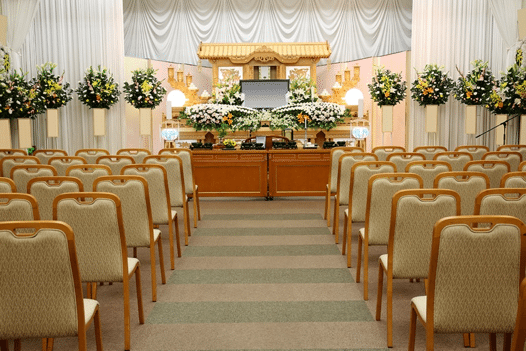
Planning a funeral involves many personal decisions concerning how you or your loved one wish to be laid to rest. We often hear questions from the Midland and Big Spring families we serve about the major differences between the funeral options we offer and what will fit best for their wishes, traditions, preferences, and budget. The team at Nalley-Pickle & Welch is always ready with the answers to those questions, and we can walk you through each decision. So, what are some of the most common questions we hear when it comes time to plan a service? Here are a few:
- What is a graveside service?
A graveside service is a service held at the site of burial. It is typically a brief service where family and friends can say their final goodbyes. In most cases, the casket or urn is present. Friends and family gather at the site, a eulogy is delivered, and the service is concluded with a committal and a prayer said over the grave. The term committal refers to the body of the deceased being entrusted to the ground. Graveside services are most often held following a funeral service.
- What is a funeral service?
At a funeral service the casketed remains are present, and the service is typically held soon after death occurs. Generally, the funeral service is held in a church setting or funeral home. During the service, clergy, family, and friends may choose to speak about the deceased and the life that was lived. Commemorating the loved one is also an important part of the funeral service. Memory tables, photo boards, tribute videos, special music, and personal clothing can be used to communicate the unique personality of the loved one in a dignified way. Holding a reception before or after the funeral service is another way to honor your loved one as well as express appreciation to your guests for the support they are offering.
- What is a memorial service?
A memorial service is a service where there are no casketed remains, but in some cases, an urn may be present. Memorial services are usually held in the funeral home or church. Because the body of the loved one is not present, a memorial service does not need to be held within several days of the death and can be delayed to meet the needs of the family. Like a funeral service, a memorial service presents many opportunities to commemorate the loved one through the use of personalization options, flowers, or vehicles.
- What is scattering?
Scattering refers to a meaningful act of disposing the cremated remains in such a way that it can represent a permanent oneness with an important place. Scattering in a river, lake, at sea, over a mountain, at a farm, and even a golf course is not uncommon – provided a permit can be secured and that local and state laws are followed. Nalley-Pickle & Welch can help you coordinate the scattering and advise you of any local ordinances prohibiting scattering. Many cemeteries offer “scattering gardens” with the added benefit of memorialization. A scattering urn is especially designed to hold the cremated remains until the scattering ceremony, or it can be used as a memento or keepsake afterwards. Be sure to consult your clergy as some religions will permit cremation but not allow scattering.
Whether you are planning for immediate need now or preplanning for the future, know that our caring team is here for you 24 hours a day to answer your questions. If you do not find your answers here or on our website, you can always reach out to us for the help and answers you need.
